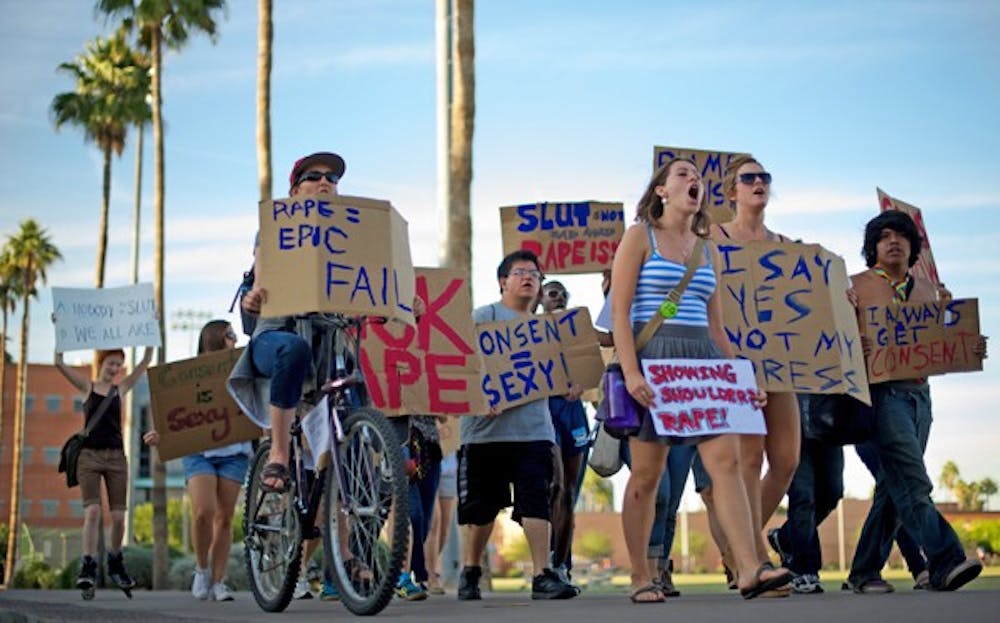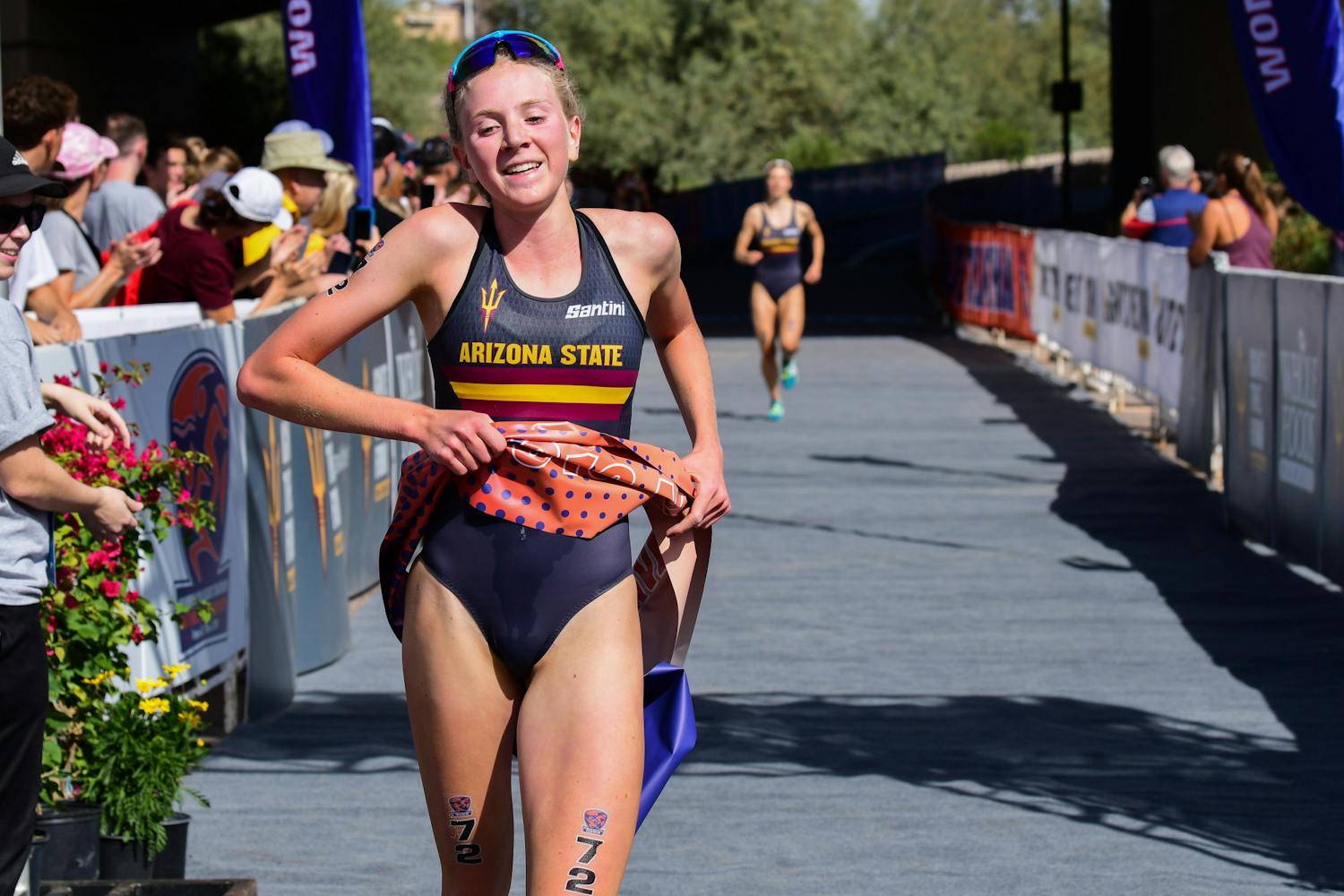“Whatever we wear, where ever we go ‘yes means yes,’ and ‘no means no.’”
A group of about 40 scantily dressed students chanted this down Mill Avenue on Friday as they marched from the Memorial Union to Tempe Beach Park as part of Tempe’s SlutWalk.
SlutWalk is a global movement held to protest the blaming of rape victims for perpetrators’ actions. The movement started in response to comments made by a representative from Toronto’s police department in Canada on January 24.
“Women should avoid dressing like sluts in order not to be victimized,” a representative from a Toronto police department said in a presentation at York University.
Senior justice student Kiri Semerdjian was inspired to organize a SlutWalk in Tempe when she heard what was said in Toronto.
“Calling a woman a slut based on how she dresses or if she sleeps with a lot of men isn’t right,” Semerdjian said. “It does not mean she deserves to be raped.”
Putting the focus and blame on the victim rather than a perpetrator is a huge problem in the American justice system, she said.
“What a victim was wearing doesn’t mean she said yes,” Semerdjian said.
Women and gender studies professor Yasmina Katsulis said rape victims being judged based on appearance isn’t uncommon.
“The police, indeed the general public, often gauge the merit of any accusation of rape based on the person’s sexual reputation and appearance, whether there were alcohol or drugs involved, et cetera,” Katsulis said in an email. “This is often the case in court in the U.S. as well as in popular media.”
While Katsulis doesn’t believe SlutWalk will change these issues, she thinks it might encourage people to think more deeply about the sexual double standard, she said.
Semerdjian and the participants in SlutWalk Tempe hope the global movement will grow.
“It’s a message to everyone who will listen,” she said.
Music theory sophomore Erica Low, a participant in SlutWalk, opposed the idea that any sort of classification of women justifies rape.
“I’m here to protest victim blaming, especially since one in four of us are going to get raped,” Low said.
Though Lauren Edmundson graduated from ASU with an English degree last year, she made her way back to the Tempe campus to speak out against the faulty and inaccurate perception of “sluts.”
“Nobody asks to be raped,” she said. “Nobody deserves it, regardless of clothing choices, what you drink and who you sleep with. Nobody deserves it.”
Reach the reporter at ktenagli@asu.edu





